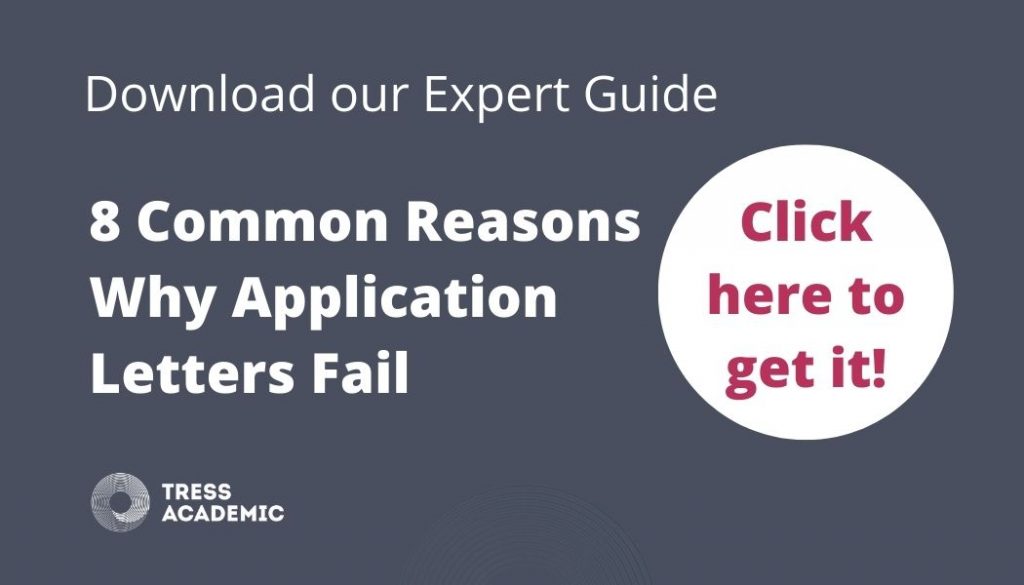Do you need a new academic position any time soon? Here, we help you by breaking down this major task into three phases, and give you a time-line according to which you can organise your own job search. From preparing a cover letter to practising interview questions, we outline the entire process. In our worksheet ’How to organise the academic job search?’ we suggest concrete actions you should take until you land your dream job.
Are you going to search for a new job in the upcoming year? Are you just about to enter the final months of your PhD and are looking forward to moving on to a first postdoc or industry job? Or are you already a post-doc searching for a second appointment to sharpen your research profile and broaden your skills? Maybe you are about to leave the post-doc years behind and are getting ready for a tenure-track position. In all of the above scenarios, you might ask yourself when is the right point in time to start searching for upcoming positions.
In our courses ‘How to apply for a postdoc position’ and ‘How to apply for an academic staff position’, we regularly advise researchers about the job hunt. We practice a complete job-application process with them, right from finding advertisements to negotiating a contract, and the one question that always pops up is “When should I start searching?”
We want to address this question with this blog post, and give you some orientation and help on when to start searching, and how to organise the job hunt in meaningful steps so you optimise your chances to get the academic position you want.
In our worksheet ’How to organise the academic job search?’ we suggest concrete actions you should perform until you land your dream job.
Don’t procrastinate the job hunt
Many of our participants, especially those with less experience, think of the job hunt vaguely as ‘one-big-action’ that they have to do at the very end of the PhD, or towards the end of a post-doc contract. It’s this big scary question of ‘what comes after my current contract runs out’. The uncertain career-path is frightening to most candidates, and the very reason why many procrastinate addressing the issue.
Needless to say that taking a wide berth around the entire issue out of anxiety won’t help you get a new position. Most candidates are able to get a good job and move to the next career level, but it usually takes some time. So the only way forward to secure a job and to minimise your anxieties is to start out early, and consider the job search a process that accompanies your final PhD year or post-doc months. It runs parallel to anything else you’ll do during that time.
See the job search as a process
Considerable time will pass between the day when you decide what exactly you are looking for and start searching, and the day you start work at a new institute or university. You’ll have to screen advertisements, prepare diverse sets of application documents, get familiar with the interview process, prepare job-talks, and negotiate your contract, just to mention a few major points.
So start thinking of your job search as a process in which you do one step after the other until you’ve landed a job. Breaking this big issue down into individual steps makes it more manageable – and you’ll find it easier to get started.
Below, we outline a rough time-line with the main steps that you should perform. While you can certainly use it for orientation, please be aware that there are many variables at play in your individual situation. Some steps may take longer or go quicker, depending on the job market, the position you are looking for, and your mobility and flexibility to work internationally. We suggest you organise your job search into 3 phases. Check out our free worksheet ’How to organise the academic job search?’ in which we suggest concrete actions you should perform in each phase until you land your dream job.
Job-search phase 1: Getting ready
You should start this phase about 12 to 9 months before you need a new position. That gives you enough time to get ready without pressure.
In this phase, you should get used to regularly and systematically looking for job advertisements in your field or discipline. You can use job portals and the websites of academic associations in your field to find appropriate announcements.
Brush up on the information you present about yourself on social media. LinkedIn and Twitter are great platforms to present yourself. Likewise, you should sign up to the newsfeeds of important universities and research institutes in your field so you don’t miss any announcements.
You will need a good cover letter and a substantial CV. These are the two standard documents you need for every job application. In addition to that, many academic positions require you to send in a research statement and a teaching portfolio.
Set time aside time to update your CV. You’ll find our blog posts on this topic very helpful:
- Why a great academic CV is a work-in-progress!
- Six smart strategies for a strong Academic CV
- CV-makeover: revamp the design of yours
Get started writing a cover letter, and use our free expert guide ‘8 common reasons why application letters fail’ to avoid common mistakes.
In phase 1, you want to get a really good insight into the job market in your field. Obtain additional information by visiting the career center of your university and see how they can help.
Job-search phase 2: sending your first job applications
You should start this phase about 9 to 6 months before you need a new position. You should already be equipped with a set of standard application documents which you have updated to a superior state Now you can start sending out those first applications.
We often note that applicants tend to be very hesitant when it comes to sending out first applications. Some even think it’s still too early, and that they might not be able to accept a position because their current appointment or PhD is not finished. The chance that you have to decline a position because it’s too early is much smaller than you running out of your contract and being desperate to find something last minute. So don’t wait too long or for the perfect position in the perfect location to appear (it may never come).
It is a better strategy to start applying for positions even if you are not 100% sure they are a perfect match. You gain much insight into how this whole academic job hunt works by just throwing yourself into the process and acquiring first-hand experiences. You’ll be over the moon for every invitation to interview that you receive, and you will reflect on and learn from every rejection letter that you get, and this will help you fine-tune your further application strategy and documents.
In our free worksheet ’How to organise the academic job search?’ we provide lots of extra tips about the actions you should perform in each phase leading up to your dream job.
Job-search phase 3: attend first interviews
You should start this phase about 6 to 3 months before you need a new position. Ideally by that time, you have received your first invitations to interviews. You’ll continue sending applications, performing all actions mentioned in phase 2 until you nail it and receive a good offer.
Getting an invitation to interview opens a whole new chapter in your job search. First, you know that you are a potential candidate – that is a major breakthrough and greatly increases your prospects to actually receive an offer. Second, your actions now shift from focussing on preparation of the application material to preparing yourself for an interview, and eventually a job talk.
Inexperienced candidates often underestimate how important thorough preparation is before attending a job interview. It’s certainly not good enough to just show up and see how it goes. Professional preparation and appearance will take you a long way, and can put you ahead of the competition.

Don’t give up! Continue until you are successful!
Of course, you’ll have to continue your search until you are successful. You’ll likely need a lot of nerves and stamina in the final phase. In exceptional cases, we’ve seen candidates land a job after just a single application, but most need a couple of attempts to just make it to a first interview.
As you’ve seen, there are many steps you’ve got to undertake to land your dream position. If you break it down into the bits and pieces that we outlined above, you can make the entire process more doable.
The time demand for a job search is high – especially in the beginning, until you have a better idea about the job market, and you have set up a suite of standard documents that you can further modify as you go on.
Don’t despair if an offer does not pop up after a couple of months. Often, successful candidates are those who do not give up after they receive a handful of rejections, but are those who persist and continue searching – sometimes for a long time. Like with many other things in academia, this is often a question of mental strength and stamina rather than skills or luck!
Resources:
- Worksheet: ’How to organise the academic job search?
- Expert guide: 8 common reasons why application letters fail
- Blog post #33: Why a great academic CV is a work-in-progress!
- Blog post #31: Six smart strategies for a strong Academic CV
- Blog post #18: CV-makeover: revamp the design of yours
- Vitae-Careers
More information:
Do you want to successfully complete your PhD? If so, please sign up to receive our free guides.
Photo by igor miske at unsplash.com
© 2021 Tress Academic
